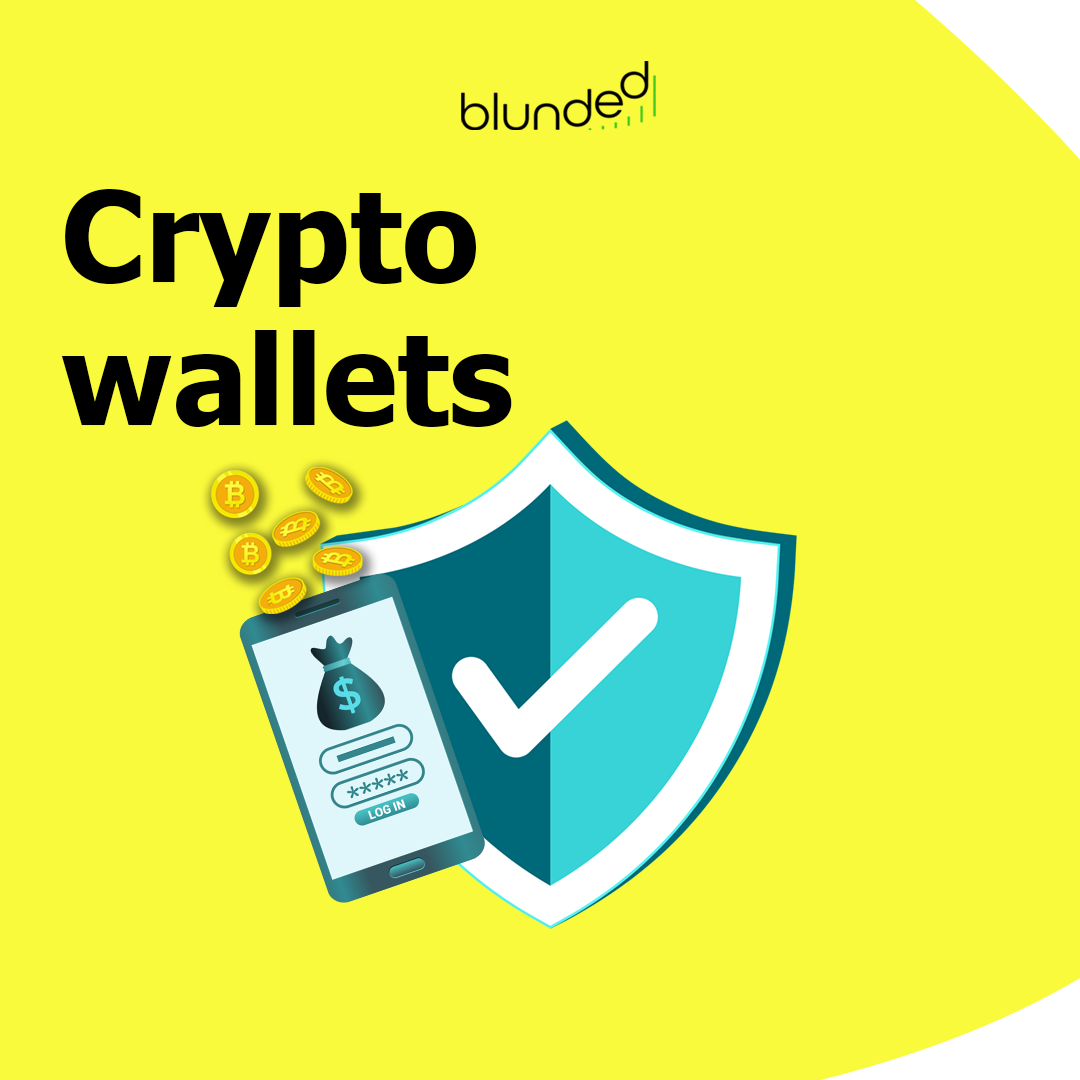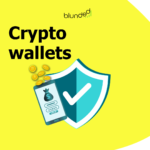A crypto wallet is an app or extension on your computer, your phone or on a harddrive. In this wallet you keep your private keys, you manage your tokens and it’s your connection to the decentralised crypto market. You could compare it to a credit card combined with a proof of identity, but without revealing your personal info to anyone. It is your address on the blockchain. And the best thing is: you have complete control over your wallet, there is no third party: no bank, no government and not even your wallet provider has any control over your wallet.
Why do you need a crypto wallet?
To keep your crypto safe and have full control over your funds! Many people who buy crypto use a centralised exchange like Binance or Coinbase. You make an account, you verify your identity, you deposit money and you buy the token of your choice. The exchange takes your money and vouches for being able to deliver the tokens you bought. The phrase “Not your keys, not your crypto” is used to remind people to take control of their cryptocurrency and not to leave it on an exchange. If you leave your cryptocurrency on an exchange, you are not in control of it, as the exchange has the private keys required to access it. This means that if the exchange is hacked or goes bankrupt, you could lose your crypto. Therefore, it is wise to store your crypto in a wallet that you control, where you have the private keys.’
Also, if you want to use decentralised apps (dApps), like the blunded tradeplatform that is coming soon, you need a crypto wallet. These dApps operate on the blockchain, so you need your own wallet to connect to the users or protocols on the (blockchain)network.

Private Keys, Public Keys and seedphrases
A private key is a string of letters and numbers that acts as a key to authorize transactions. In cryptocurrency, a private key is an alphanumeric code that allows users to access and send coins from their wallet. It is important to keep your private key secure and private, as anyone with your private key can access and spend your funds. Private keys are generated with a cryptographic algorithm, and are used in combination with the public key to create a secure digital signature.
A public key is a code that is generated from the private key and is used to receive coins from other wallets. It is essentially a unique address that is used to receive payments, like your email address. Public keys are created with a mathematical algorithm, and can be used to generate a unique address for each transaction.
A seedphrase is a set of words that can be used to generate a private key. It is a secure way of creating a private key, as it helps to avoid the potential of someone else stealing it. Seedphrases are often used to back up wallets, as they can be used to restore access. When creating a wallet, you’ll receive your seedphrase. Most people don’t grasp the importance of storing their seedphrase properly. They just screenshot their seedphrase (extremely unsafe) or forget to save it at all. They might think: so what? I know my password and I have a password manager. That is true, that is probably what this guy thought:

Which wallet should I choose?
Cryptowallets exist in many forms. Hardware wallets (harddrives with or without corresponding apps) have no connection to the internet, that is why a hardware wallet is the safest option. Most hardware wallets are also multi-chain. Then there are software wallets like metamask and trust wallet, that are particularly easy to use when connecting to decentralised apps.
Some wallets only work with one blockchain (only ethereum or cardano for instance) while other wallets are multi-chain. Metamask, for instance, was originally built for ethereum, but since binance smart chain works very similarly, metamask also implemented the Binance smart chain amongst others. Trust Wallet (owned by Binance) is also multi-chain and fairly user friendly. While trust wallet is owned by a big centralised exchange, your funds are still being held on your own wallet/address. Which is a big plus.
Note; you don’t have to use just one wallet. Since not all wallets support each blockchain, and since it is actually quite smart to distribute your assets over multiple wallets. Also depending on your risk management. However, this does take a little extra work and it is harder to keep track of all your tokens, but that’s where the blunded portfolio tracker comes in!
Where do I get a wallet?
If you want to invest in crypto for the long term, and stay as safe as possible we recommend using a hardware wallet. One of the most well known and trusted hard wallet providers is Ledger. Ledger offers a range of hardware wallets starting from €79- including VAT. Follow this link to visit their site (this is our affiliate link): https://shop.ledger.com/?r=6e91d43996c5
Whether you want to buy a ledger through our link, download a wallet from the internet, search for a wallet app on your smartphone or buy another hardware wallet. ALWAYS make sure you’re on the official site, since wallets grant access to all your funds. Even though your wallet is empty when you buy it, if people secretly have access to it, they might try to steal your funds later on.
So only click on links you 100% trust, and don’t take advice from tangers that try to ‘help’ you. If you are not sure about a link or you would like more information on wallets, don’t hesitate to contact us through email, chatbot or our socials.




